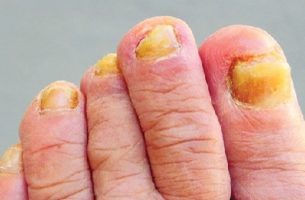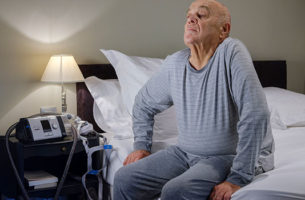What causes yellow nails? Nails can tell you a lot about your overall state of health. When they become yellow, it usually means that you have a fungal infection or is part of the ageing process. But there are other causes. We will now go through the causes of yellow nails, and its treatment. Before […]
Read MoreHow much to allow (subtract) for clothing when you weigh yourself (1.5kg) About 1.5kg (3 pounds). If you are trying to lose weight, and calorie counting, you may be weighing yourself on different scales, with clothes on/off/half on etc. The data below will help you factor in the weight of your clothes. The amount to […]
Read MoreLong-term complications of diabetes Diabetes (Type 1 or 2) – whether controlled by insulin, tablets or diet – has many long-term complications. They can be divided up into 5 groups. Most of the complications start 10 years or more after the onset of the disease. 1. Microvascular Diabetic retinopathy (eye damage): Damaged blood vessels in […]
Read MoreComplications of Ozempic (semaglutide) Semaglutide is a revolutionary drug. But what about its long-term effects? Is Ozempic safe to use for several months or years? The truth is, as the drug is relatively new, the long-term effects of Ozempic are not yet fully known. Ozempic (semaglutide) was originally designed to control blood sugar levels in […]
Read MoreLong-term effects of head injury and concussion Some contact sports are now known to cause long-term problems secondary to repetitive head injury and concussion – including: football; rugby union and rugby league; American, Australian rules and Gaelic football; boxing and other martial arts, where there is repetitive striking of the head. Other contact sports, like […]
Read MoreLong-term effects of tobacco smoking Long-term smoking does harm to many parts of the body, 1. Cardiovascular disease Smoking increases the risk of cardiovascular disease, including ischaemic heart disease (IHD), stroke, and peripheral vascular disease (PVD). 2. Lung cancer and respiratory problems Smoking is the primary cause of lung cancer, accounting for 80% of lung […]
Read MoreLong-term effects of painkillers and analgesia Analgesia (painkillers) are useful in the short term to deal with pain. If possible, long term use is best avoided, for the following reasons. 1. Opioid dependence and withdrawal Long-term use of opioids (e.g. morphine, fentanyl) can lead to physical dependence. Withdrawal symptoms include nausea, tremors, and anxiety. 2. […]
Read MoreWhat are the long-term effects of alcohol? There are many long-term effects of excess alcohol use. It primarily affects 3 organs (the liver, heart and brain). We will deal with them first. 1. Liver / Gastrointestinal System Alcohol can harm the liver, whose job it is to break down harmful substances in the body. This […]
Read MoreWhat are uterine fibroids? Definition Uterine fibroids, also known as uterine leiomyomas, are benign (non-cancerous) growths that develop in the uterus. They are made up of muscle and fibrous tissue and can vary in size, shape, and location – they may be tiny or as big as a football. Natural history: they often regress (go […]
Read MoreFibroids: 10 Q&As and answers There are many controversies and challenges associated with fibroids. This is why it is complicated and difficult to make decisions for the patient and doctor. In this article, we will now go through 10 of the controversies (and challenges) about fibroids as Q&As. 1. What are uterine fibroids? Uterine fibroids, […]
Read More








